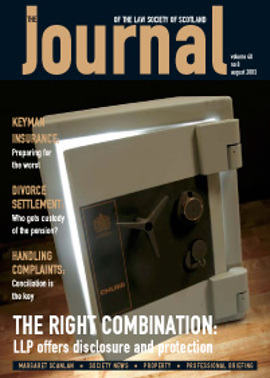Employment briefing
Age Discrimination
The first consultation exercise is with a view to implementing the age discrimination rules of the EC Equal Treatment Framework Directive. The Government proposes that retirement ages set by employers will be unlawful unless objectively justified on grounds such as health, safety and welfare; facilitation of employment planning; training requirements; or encouraging and rewarding loyalty.
It is also proposed that decisions about recruitment, selection and promotion should not normally be based on age but that it may be possible to apply age limits to recruitment if an employer can justify doing so. Likewise, pay and non-pay benefits based on length of service could still be lawful if they can be justified.
As far as unfair dismissal claims are concerned, it is suggested that claims will be permitted at any age, unless dismissal is at the employer’s justifiable mandatory retirement age or at any default age (if one is set by the legislation). This announcement will no doubt be much to the chagrin of Messrs Rutherford and Bentley who continue their fight for the right to bring unfair dismissal claims in spite of their age.
It is also proposed that service under the age of 18 will count for the purposes of statutory redundancy payments and any upper age limit for such payments will depend on the decision made on retirement ages. Finally, our ready reckoners may become a thing of the past if the proposal to remove age as a factor in calculating both the basic award and statutory redundancy payments is approved.
Indicative of the need to implement the age discrimination requirements of the Equal Treatment Framework Directive sooner rather than later is the statistic revealed by “Towards Equality and Diversity” – a previous Government consultation exercise – that 50% of respondents said they had faced some form of age discrimination at work or had witnessed someone else suffering from it.
Consultation will remain open until 20 October 2003 with a view to draft regulations being published in the first half of 2004 and then implemented by the start of October 2006.
Information and Consultation
This document concerns implementation of the EC Information and Consultation Directive. For the first time, the Government has approached the implementation of European social legislation in partnership with the CBI and TUC. This has enabled an agreed framework for implementation of the Directive to be set out, meaning much of the work has already been done.
However, a few issues remain outstanding. Firstly, the terms of the Directive allowed Member States to choose whether to apply implementing legislation to undertakings with 50 or more employees, or to establishments with 20 or more employees. The Government has plumped for the former leaving a question mark over how to allow pre-existing or negotiated agreements to operate at a level other than the individual undertaking and views are sought on this.
There are also two potential overlaps which are causing some consternation. The first is between the existing arrangements for collective redundancies and TUPE transfers and the new Regulations, and the second is between existing collective agreements and the new Regulations. The Government has sought views on how any problems could be alleviated in practice.
This consultation will run until 7 November 2003 and implementation must take place by March 2005.
Dispute Resolution
Last but not least, the DTI has commenced consultation on implementation of the provisions contained in the Employment Act 2002 which introduce statutory dismissal, discipline and grievance procedures. The aim of these provisions is to avert legal action and, instead, assist the resolution of matters through dialogue.
The foreword states that the consultation will be of particular interest to small firms, their employees and the organisations that represent them.
This consultation is open until 29 October 2003, with implementation of the Regulations due in October 2004.
These documents can be accessed through the DTI website: www.dti.gov.uk
Malcolm Mackay, Maclay Murray & Spens
In this issue
- Summertime and the living is easy
- Merits of modern partnership structure
- LLPs and PII – frequently asked questions
- Always protect your partnership in times of crisis
- A decade of disputed advice
- Far-reaching financial consequences of flawed agre
- How to make client care programmes work
- Winning the game of risk
- Cut down on account preparation time
- Mental health database
- New complaints handling system at the Society
- Muddying the waters on admissibility of hearsay ev
- Conveyancers must be aware of changes to stamp dut
- Employment briefing
- Privacy v expression: battle of Convention rights
- New protocol is major step forward on child abduct
- Website reviews
- Book reviews
- Difficulties of descriptions of exclusive garden
- Checklist for stamp duty applications






